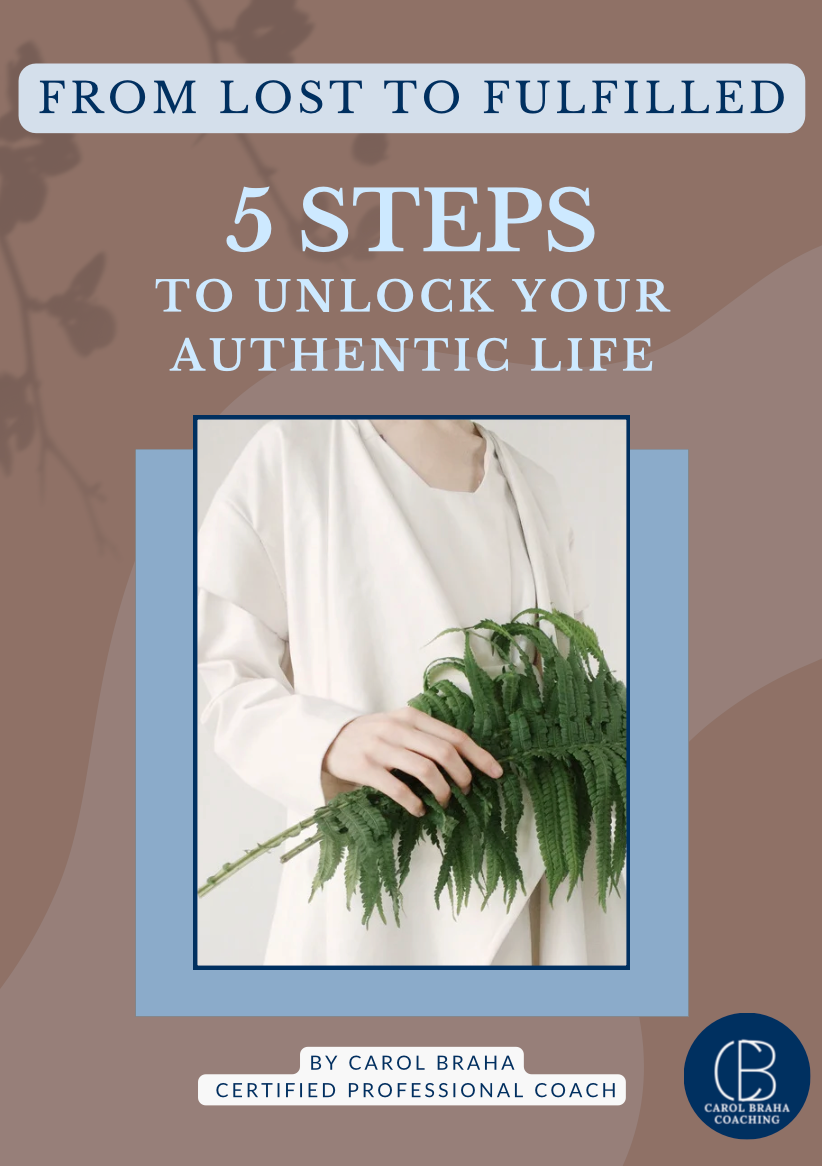8 Unique Tips To Build a Better Life

Introduction:
Life is an incredible journey, and deep down, we all yearn for something extraordinary—a life that transcends the ordinary, where happiness and fulfillment are our unwavering companions. As the age-old saying wisely reminds us, "Life is what you make it." This powerful mantra serves as a constant reminder that we hold the reins of our destinies firmly in our hands. In our quest for a better life, we draw inspiration from diverse sources, whether it be the wisdom within books, the guidance of mentors, or the lessons etched into our own experiences. Each new day grants us an opportunity to sculpt a life that harmonizes seamlessly with our dreams and aspirations.
This article serves as your trusted guide, offering eight unique and down-to-earth tips to illuminate your path toward a brighter, more fulfilling tomorrow. Enjoy these tips for a better life!
Tip 1: To Build a Better Life, Stop Taking Things Personally
In our pursuit of a better life, one of the most transformative steps we can take is to cease taking things personally. Why, you ask? Because what others say or do often reflects more about them than it does about us. Each person carries their unique set of beliefs, experiences, and emotions that shape their behavior.
Consider this scenario: you decide to embark on a unique adventure, and someone close mocks your choice. At first, it may sting, but upon reflection, you realize their words are a mere reflection of their upbringing and belief system, with no real bearing on your actions.
Similarly, when someone rudely honks their horn at you in traffic, it's usually a reflection of their impatience or frustration, not your driving skills.
Remember, don't let others' judgments, words, or actions define your worth. In most cases, it's a mirror of their inner world. By mastering this skill, you'll not only build resilience but also create a better life that's less weighed down by unnecessary emotional baggage.
Tip 2: For a Better Life, Use Your Breath to Connect to the Present Moment
In our fast-paced lives, anxiety, stress, and worry often become unwelcome companions. They lead us into the realm of "what ifs"—potential future scenarios that may or may not materialize. However, the truth is, in the present moment, things are usually just fine.
Picture yourself stuck in traffic, running late for a crucial meeting. Your heart races, and your mind becomes a whirlwind of apprehensive thoughts. In these moments, your breath can serve as an anchor. When anxiety creeps in, turn your attention to your breath. Observe the rhythmic flow of air in and out of your body. This simple act will calm your racing heart, ground you in the present, and reconnect you with reality.
Practice this mindfulness exercise not only during stressful times but also in everyday situations—waiting at the doctor's office, riding the subway, or simply sitting on the beach. It'll help you access this calming technique more readily when stress or anxiety loom.
While scientific research extols the benefits of meditation, I won't prescribe a formal practice. Instead, use your breath as a means to anchor yourself in the present moment. I've found this approach invaluable during times of heightened stress, and it can greatly contribute to building a better life for you too.
Tip 3: Embrace Self-Kindness for Positive Change and a Better Life
When it comes to that inner dialogue—the self-talk that narrates our lives—it's crucial to understand that kindness and compassion hold more power than criticism and self-punishment.
Allow me to share a personal story: Recently, during a walk, I set a goal to reach a specific point before turning back. As I neared it, fatigue set in, and I contemplated turning back prematurely. In that moment, my inner critic spoke up, telling me, "If you turn back now, you're just being lazy." However, I didn't succumb to this harsh self-criticism. Instead, I challenged that inner voice, thinking, "Who are you to label me as lazy? I'll decide when and why I turn back." This self-assertive response made me realize I didn't appreciate how the criticism made me feel.
So, I shifted my self-talk. I began saying, "Keep going because this walk is good for your well-being, and you'll feel amazing afterward." With this newfound self-kindness, I felt more motivated and determined.
Berating yourself with labels like "stupid," "lazy," or "worthless" might provide momentary motivation, but it sets a self-fulfilling prophecy in motion. The way you speak to yourself holds immense power. Embracing self-kindness will transform your actions, mindset, and the world around you. Self-compassion is the key to building a better life.
Tip 4: Accept Responsibility, Skip the Self-Blame, and Live a Better Life
When life throws a curveball, it's common to descend into self-blame, chastising yourself with thoughts like, "You're so stupid," "It's all your fault," or "You should've known better." However, self-flagellation doesn't serve your mental well-being.
Instead, accept responsibility for making things better. Imagine you're driving and encounter a slow-moving car. Frustration builds, and you honk your horn and swerve around, only to realize it's an elderly driver. Guilt washes over you, and you start judging yourself mercilessly. That's the blame game.
Now, picture this: you don't blame yourself but take responsibility. Your internal dialogue might go like this: "I feel bad about what I did. I understand why I acted that way; I was frustrated and unaware of the driver's situation. But I'm not proud of my impatience. At the next red light, I'll roll down my window and offer an apology for my hasty actions. In the future, when I encounter slow-moving cars, I'll practice patience until I can safely change lanes."
Self-blame damages your self-worth and creates a hostile, unforgiving inner environment. Taking responsibility, on the other hand, empowers you to build a better life—one that's kinder, more compassionate, and ultimately more fulfilling.
Tip 5: Embrace Your Emotions Without Judgment for a Better Life
Stop labeling your emotions as good or bad. This judgment often causes more distress than the emotion itself. For example, stress is a natural response when facing challenges. However, your attitude toward stress plays a significant role in how you experience it. If you view stress as a bad thing, its negative effects on your mental and physical health amplify.
By embracing your emotions without judgment, you create a space for self-discovery and personal growth. This emotional freedom allows you to navigate life's challenges with greater resilience and self-understanding. Remember, emotions are neither good nor bad; they're part of the beautiful tapestry of human experience. Embrace them, learn from them, and watch as your life becomes richer and more fulfilling.
Tip 6: To Live a Better Life, Free Yourself from "Have Tos"
Are you tired of living a life filled with obligations and "have tos"? Such a life can take a toll on your mental health, leaving you feeling depleted and disempowered. It's time to make a change.
Step one: Recognize that many of your "have tos" aren't true obligations. They're often based on fear, conformity, or the desire to please others. Take family and friend dinners, for example. If you truly dislike them, you have the power to stop attending. You don't have to go just to please others or avoid gossip.
Step two: If you decide to keep some "have tos" for valid reasons, reframe them as "choose tos." This shift in language empowers you. Say, "I choose to go to family dinner because family is important to me." Instead of "I have to exercise," say, "I choose to exercise because it helps me feel strong and energized." Instead of "I have to clean the house," say, "I choose to clean the house because I prefer a tidy living environment."
By making conscious choices, you reclaim your power and prioritize what truly matters to you. It's time to free yourself from the burden of "have tos" and embrace a life of intentional choices for improved mental health and a better life.
Tip 7: It's Okay to Walk Away
In a world that often promotes the message of never quitting, it's crucial to understand that quitting doesn't always equate to failure. While perseverance is commendable, there are instances when walking away is the wisest choice.
Life is short, and time and energy are limited resources. If you embark on a path that doesn't align with your true self, it's acceptable to choose to walk away. Holding onto something you no longer enjoy simply because you fear being labeled inconsistent can be detrimental to your mental health.
Being open to change and growth is a sign of resilience. Your well-being matters, and it's okay to walk away from situations that no longer serve your happiness and fulfillment. Embrace new opportunities that align with your values and aspirations for a better life and improved mental health.
Tip 8: Embrace the Power of Positive 'What Ifs' For a Better Life
Taking risks can catalyze personal growth and a happier, more fulfilling life. However, our natural fear of the unknown often holds us back. When we contemplate trying something new, our minds generate a list of potential negative outcomes, paralyzing us with doubt.
To conquer this fear, replace 'what if this goes wrong' with 'what if this goes right?' Shift your focus from the worst-case scenario to the best-case scenario—a life that aligns with your aspirations for a better life.
By focusing on positive outcomes, you'll kindle motivation, confidence, and excitement—a potent combination for creating a better life. Next time you hesitate due to fear and uncertainty, challenge those negative thoughts. Ask yourself, 'What if this goes right?' Embrace the potential, joy, and remarkable growth that can come from taking that courageous leap toward a better life.
It's essential to understand that taking risks isn't recklessness. It's about seizing opportunities for personal development and forging a life imbued with purpose and contentment.
Conclusion:
In the grand tapestry of life, the pursuit of a better life is a noble and deeply personal journey. It's about crafting a life that aligns with your dreams and aspirations, where happiness and fulfillment are your steadfast companions. As we've explored these eight unique tips, we've seen that creating a better life is within your reach.
You have the power to stop living under the weight of "have tos" and start embracing intentional choices that resonate with your true self. You can release the shackles of self-blame and instead accept responsibility as a stepping stone to growth. By reframing the way you perceive your emotions and shifting your focus toward positive possibilities, you'll unlock a world of personal transformation.
But remember, the journey to a better life is not solitary. It's okay to seek support and guidance along the way. If you find yourself seeking more personalized assistance and a deeper exploration of these transformative concepts, consider booking me as your life coach. Together, we can navigate the intricacies of your unique path, helping you unlock the happiness and fulfillment you deserve. If you enjoyed these 8 tips, you will likely also enjoy my article on Ten Ways To Improve Your Happiness.
In closing, let these eight tips be the stepping stones to your better life. Embrace the possibilities, take courageous risks, and believe that happiness is not just a distant dream—it's a tangible reality waiting for you to seize. So, are you ready to live life to the fullest and open yourself to a world brimming with positive possibilities for a better life? Your journey starts now, and the future is filled with promise. For more support, check out my other articles on the topics of self-love, authenticity, empowerment, and happiness, by clicking here.
Want more inspiration in your inbox?
Join the mailing list to get the latest blog posts, life coaching tips, and personal updates from Carol Braha Coaching.





